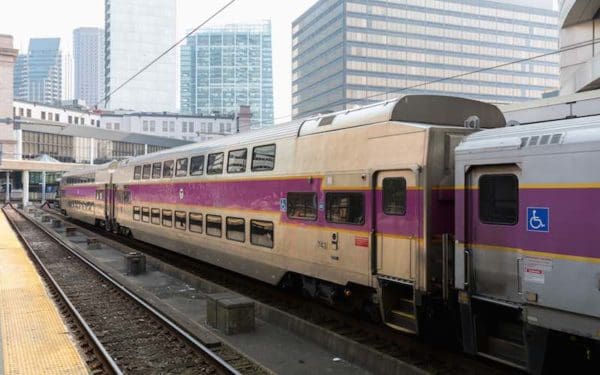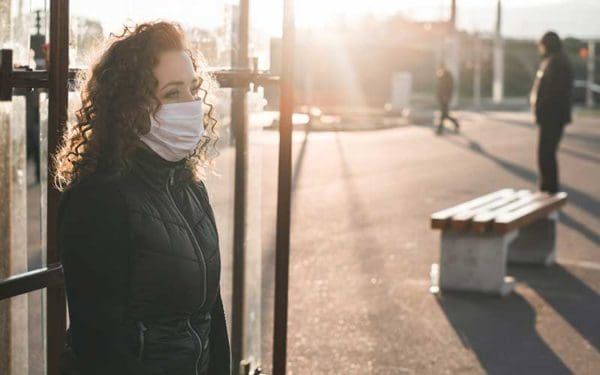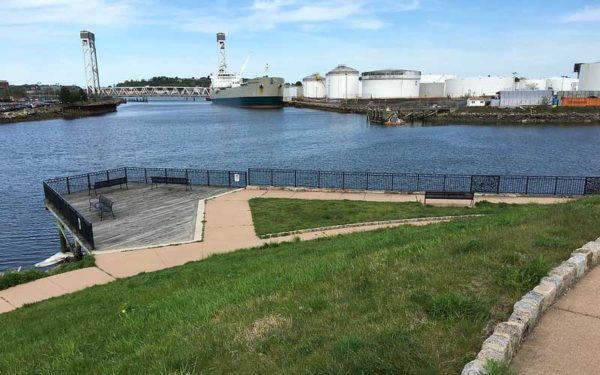Jun 22, 2020
“For too long, Boston’s black and brown neighborhoods have not had quality access to much-needed transit options,” said Staci Rubin, Senior Attorney at CLF. “This pilot is a great start, but these communities deserve the same level of transit as affluent areas like Back Bay or Beacon Hill. We’ll continue to advocate for the Fairmount Line to run as frequently as the T’s subway lines and to be electrified to improve air quality and fight the climate crisis.”
Jun 10, 2020
COVID-19’s unequal impact on our communities has laid bare stark realities about health, wealth, and housing. As our Healthy Neighborhoods Study has shown – and as the map of COVID-19 infections bears out – low-income and people of color face community-level stressors resulting from public health inequities and environmental injustices. These stressors result directly from decades of discriminatory housing policy.
Jun 05, 2020
As the nation grapples with the pandemics of racism and COVID-19, President Trump decimated protections for the Atlantic’s only marine national monument, the Northeast Canyons and Seamounts. That’s illegal — and CLF and our partners will fight this rollback.
Jun 05, 2020
“Once again, the president is making cynical use of the national crises he has inflamed to pander to the very few New Englanders who may still have faith in his leadership,” said Bradley Campbell, President of CLF. “Having ravaged our economy nationally, Trump is now dismantling the few protections now in place to avert the demise of New England’s traditional marine fisheries, culture, and economy. We call on the New England delegation and the public to fight this attack on our ocean and our future by all means available.”
Jun 01, 2020
“Preventing residents from commenting on a project that will have enormous impacts on their community is not only shameful but a form of discrimination,” said Amy Laura Cahn, Director of CLF’s Healthy Communities and Environmental Justice program. “East Boston and Chelsea already experience some of the worst air quality and pollution in the state and adding yet another industrial facility will only compound these injustices. State leaders need to be held accountable for silencing community concerns to push this project through.”
Jun 01, 2020
The complaint states that “Spanish-speaking residents were left with no way of understanding what was said during the two- and half-hour hearing, and no ability to understand and thus respond to or echo the testimony of others as an English-speaking resident might have done. When these residents were finally permitted to speak — following hours of English-only, complex, and technical testimony by parties, intervenors, and limited participants — they had no context or confidence to share their perspective, rendering the record essentially incomplete.”
May 29, 2020
“Now, we should be able to, number one, get back to business as usual and redeem those bottles and cans that people have stacked in their basements and in their garages,” said Kirstie Pecci of the Conservation Law Foundation’s Zero Waste Program. “And then, number two, we know that it’s time to stop using single-use plastic. It’s not protecting us from the virus.”
May 29, 2020
“The scientific community has made it clear that the risk of transmitting the virus by touching a bag or bottle is almost nonexistent,” CLF said in a statement. The groups also want the state to end its temporary ban on reusable grocery bags.
May 29, 2020
If COVID-19 taught us anything, it’s that essential communities like Chelsea and East Boston are continually put at environmental risk. We deserve better. We must invest in transit systems that serve Chelsea and East Boston riders affordably, reliably, and safely. Doing so will not only improve our ability to get around but will improve our public health and our climate.
May 28, 2020
“Public health must always be the primary concern,” said Kirstie Pecci, Director of the Zero Waste Project at CLF. “However, the scientific community has made it clear that the risk of transmitting the virus by touching a bag or bottle is almost nonexistent. Allowing reusable bags and resuming bottle deposits will keep tons of plastic out of landfills or incinerators and stop it from further polluting our land and air.”





